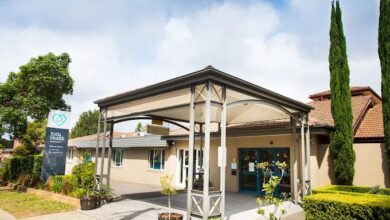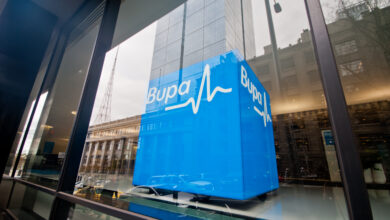Fertility nursing

At a time when birth rates are falling, nurses are at the vanguard of fertility and conception health treatment.
Since 1976, Australia’s total fertility rate has been below replacement level – the average number of babies born to each woman throughout her reproductive life is below what is necessary to replace her and her partner.
Figures reached a low of 1.73 babies per woman in 2001, peaking at a thirty year high of 1.96 in 2008.
Since the first IVF program was developed in 1971, medical professionals in this field have been assisting couples suffering infertility problems – treating with a range of medical and surgical techniques, and even lifestyle changes.
Today, one in six Australian couples experiences some level of infertility. Thus need and demand for fertility services continues to grow, the industry attracting a variety of nurses, doctors and scientists.
Mary Coumbias moved into fertility nursing after working in coronary care for a number of years, and recognising the need for shift in pace.
Attracted to a role where she could work with younger patients and play a role in creating new life, she chose to join Genea – an Australian provider of infertility, IVF and other assisted conception treatments with more than 24 years’ experience.
We spoke to her about this specialist area, challenges and what she loves most about the industry.
When and why did you realise you wanted to become a nurse?
I’ve always had a passion for health. During high school, I enjoyed sport and so, whilst I didn’t know exactly what I wanted to do after I graduated, I chose subjects that aligned with my interest in sport and health. My subject choice meant nursing was an option after I graduated and so, not knowing what to expect, I gave it a go. As the course evolved, I found I really loved all the subjects, particularly the practical placements.
How much nursing experience/extra training did you need to work in this area?
I was already a registered nurse, so I simply needed to undertake an intensive in-house fertility nurse training course offered by Genea, the fertility clinic I have now been working with for six and a half years.
The training takes three months, and ensures nurses finish the course with an in-depth understanding of our patient needs, the science behind the treatment we offer and the policies and procedures we must adhere to throughout our patients’ journeys.
As Genea is at the forefront of IVF technology, I’m continuously learning, to ensure I offer my patients the best care.
What do you enjoy most about your job?
As you can imagine, fertility treatment is an incredibly emotional journey for patients. I love being there for them and supporting them through whatever obstacles come their way. You become really close to them; it’s such a personal journey that you are so intimately involved in.
I also enjoy being part of a close, cohesive team and working for a highly reputable and the leading fertility company – but my favourite part of my job is being the first to congratulate a couple with a positive pregnancy test result and helping them start or grow their family. Seeing the end result of all that the Genea team does – the doctors, the nurses and the scientists – is incredible.
What are the biggest challenges about being a fertility nurse?
Delivering unpleasant news, especially to patients doing subsequent cycles. It’s always the most challenging part of my role but I work hard to support my patients, regardless of their outcome.
What are the bits you like most?
A positive pregnancy test! It’s an amazing feeling to tell couples they have achieved their dream of creating a family. I also enjoy educating new staff, seeing them thrive and watching their confidence grow.
What are the challenges?
Understandably, patients are very anxious during their journey. I never know how a patient will be feeling when I call, so responding to their changing emotions can be a challenge.
How do you switch off at the end of the day?
Good food, exercise and debriefing with my colleagues.
A day in the life of Mary
7:00am: The nursing team at Genea are very accessible to patients, supporting them through every step of their journey. Patients are able to email us with any concerns or questions, so I start my day responding to any enquiries. I manage a team of nurses who look after Genea patients seeing fertility specialist Dr Mark Bowman. All patients have an initial nurse consultation, so I also use this time to allocate nurses in my team to new patient interviews.
7:30am–9:00am: During this time, I am up and down from my desk, taking patients’ bloods, conducting scans and speaking with patients in person in the morning clinic.
9:00am–11:00am: Chase outstanding results and attend to voicemails. I also phone to update patients on their fertilisation results from yesterday’s egg collection and educate them or discuss next steps depending on results.
11:00am: Often conducting a new patient interview.
12:30pm–3:00pm: After lunch, discuss patient results direct with Dr Bowman. During this time I also answer patient calls, see any drop-in patients, and pack and post medications.
3:30pm: I use the afternoon to ensure that all new patient consents are complete and filed correctly. I also update current patients’ records and start preparing for the next day.
Email: [email protected]





